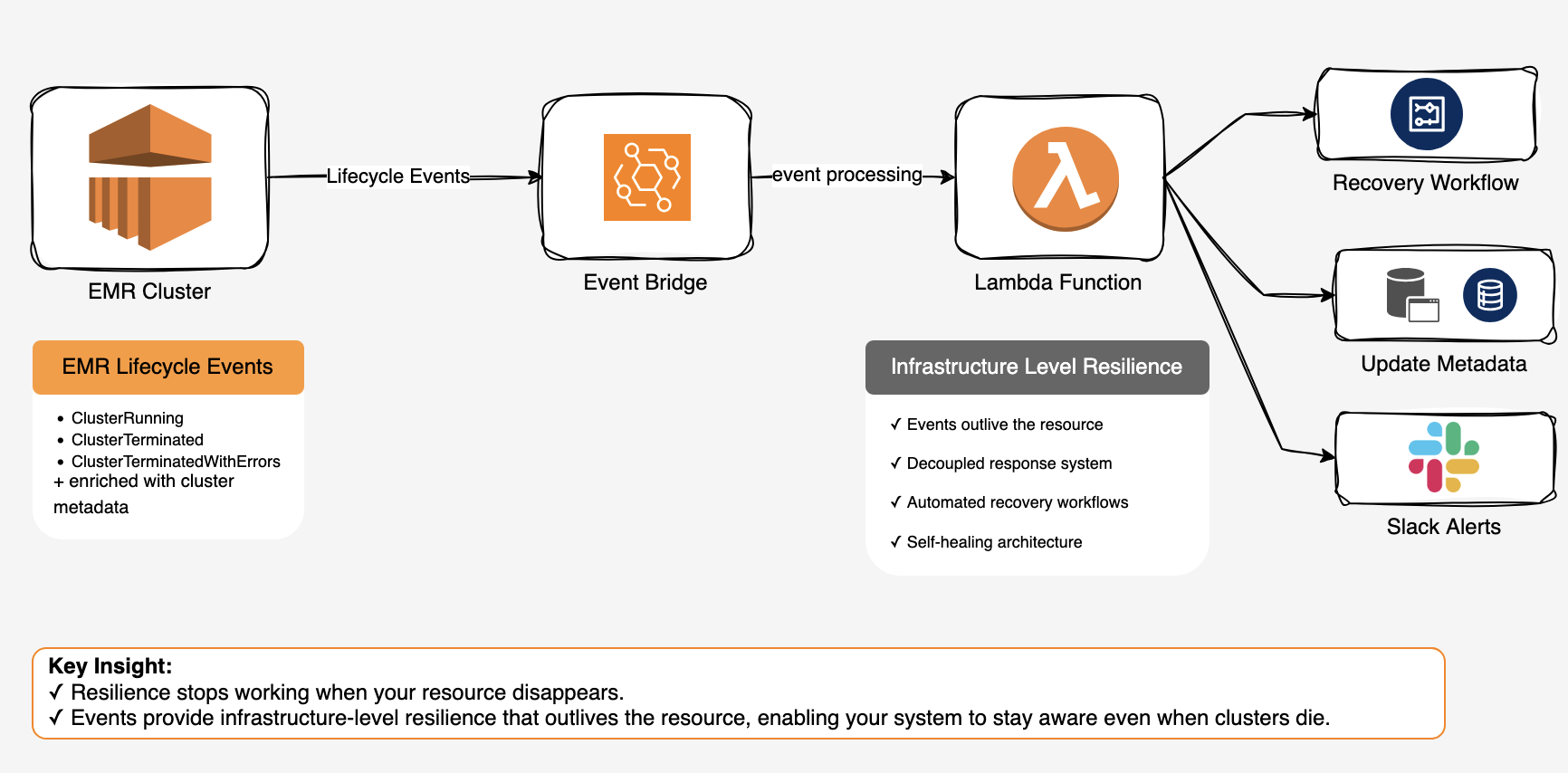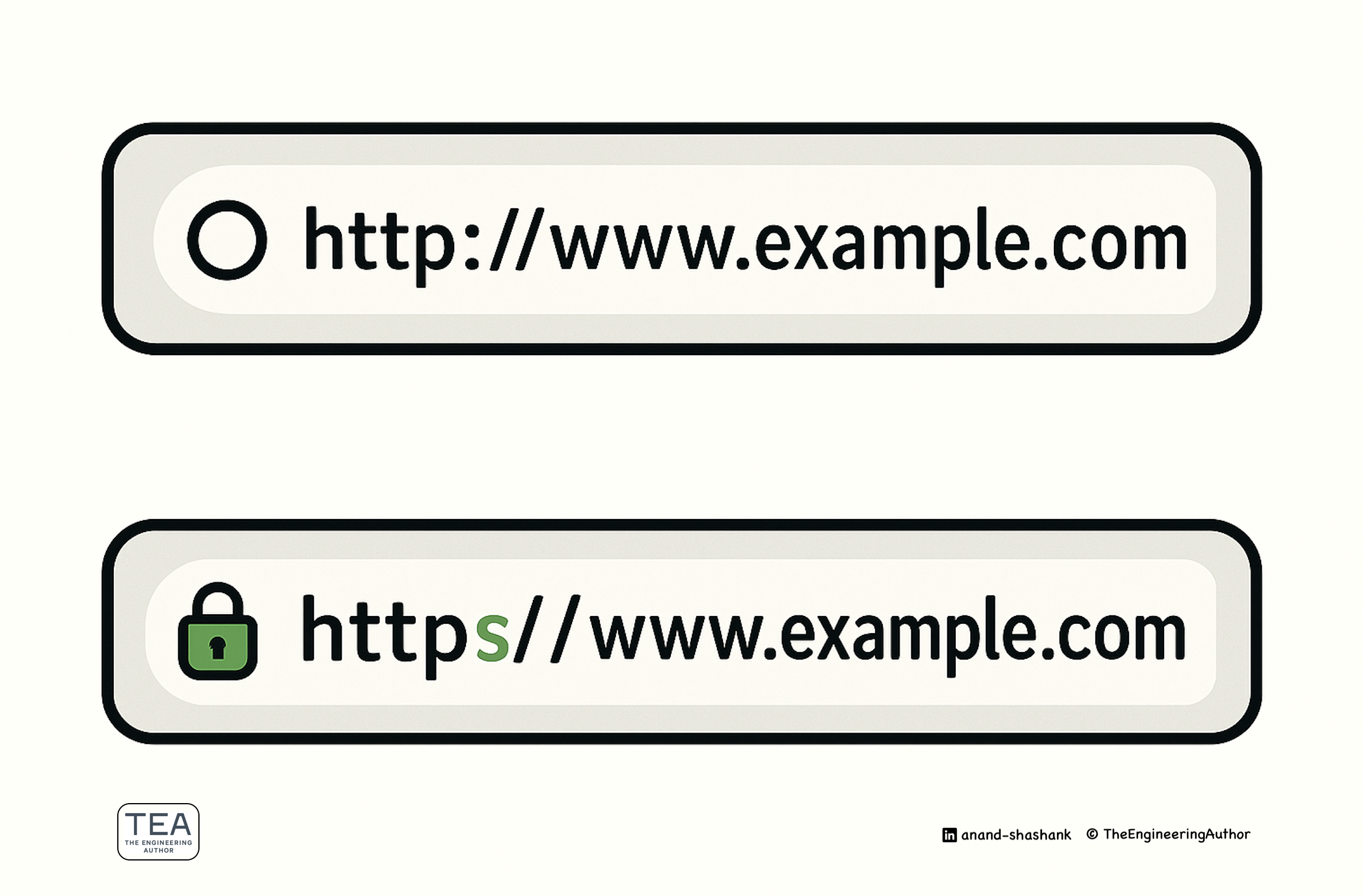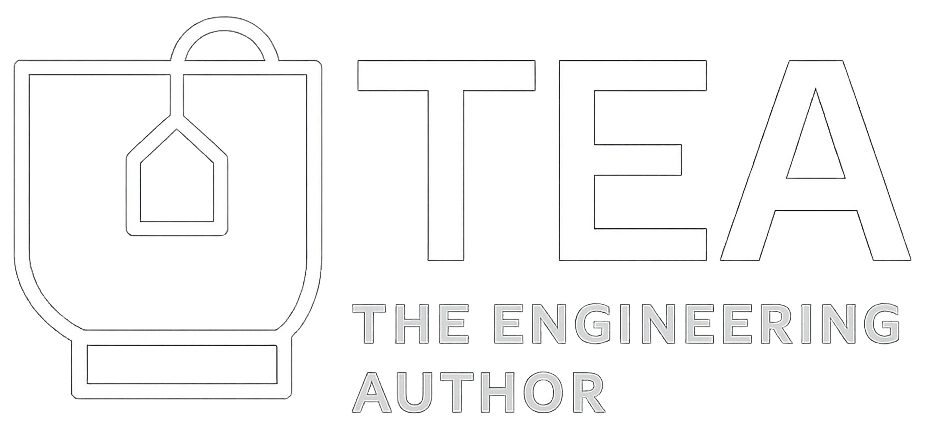
Logs Die With Your Cluster: How AWS Events Helped Us Build Real Resilience
In modern cloud architectures, building resilient systems goes beyond application-level retries and logging. Resource-level failures — like an EMR cluster terminating unexpectedly — can silently disrupt pipelines if left unmonitored. Leveraging AWS CloudTrail, EventBridge, and lifecycle events, our approach captures critical infrastructure signals, tags resources with meaningful attributes, and triggers automated workflows for alerts, metadata updates, and recovery. This event-driven design transforms transient failures into actionable insights, enabling robust, self-healing systems and bridging the gaps traditional monitoring often misses.

Fast, but Exposed: The Silent Risk in CDN-Delivered Content
Discover how modern web architectures often prioritize performance over privacy. Learn from Facebook’s CDN content leak and why your CDN layer needs access control, not just speed.

How Live Video Streaming Works: A High-Level System Design Breakdown
Learn how live video streaming works—from real-time encoding to edge delivery. This video/article breaks down each component in the system, helping you understand how platforms like Twitch, YouTube Live, and Facebook Live deliver high-quality streams to millions across the globe with ultra-low latency.

🔐 The Lock in Your Browser: Why That Little 'S' in HTTPS Matters
Ever noticed that tiny lock icon in your browser? That little "S" in HTTPS isn't just a letter — it's your digital seatbelt. Learn how it protects your data, prevents snooping, and keeps the internet safe, one secure connection at a time.

How AI is Quietly Changing How We Build Software?
AI now slips into every build step: LLMs draft backlog tickets, code models autocomplete functions and tests, RL speeds up CI, smart classifiers pick only the tests your diff needs, Bayesian watchers guard canary releases, and embedding clusters surface new errors with LLM runbooks to fix them—shrinking feedback loops while you keep coding.

🔐 Encryption vs Hashing: A Tale of Two Secrets
Ever wondered what "end-to-end encrypted" really means? Or whether companies can see your passwords? In this story-driven breakdown, we explore the real difference between encryption and hashing — two unsung heroes protecting your messages and accounts.

Evolving an E-Commerce Architecture: From MVP to Enterprise-Ready
Evolving E-Commerce Architecture: From MVP to Enterprise-Ready
A pragmatic, phased approach to scaling e-commerce platforms. Starting with a monolithic MVP, the journey moves through headless CMS adoption, modular microservices, and ends with a resilient, enterprise-ready architecture. Key highlights include use of ECS, Lambda, SSO, WAF, and robust observability tools — all evolving based on real-world needs, not over-engineering. A must-read for architects scaling digital commerce.

Milliseconds Matter - Understand how car components communicate with each other
🚗 From Bluetooth to bandwidth, today’s cars are more software-driven than ever. Safety now hinges on how fast your car’s systems communicate—not just hardware like airbags. In a crash, milliseconds matter. It's time we evaluate vehicles like we do smartphones: by their data speed, processing power, and communication protocols. The future of driving demands a new way of thinking. #CarSafetyTech #FutureOfDriving #MillisecondsMatter

Frustration with My Jaguar🚗 Service🔧 Led Me to Deep Dive into Automotive Digital Car Data APIs 📊💻
🚗 Can a local garage really service my Jaguar without hurting resale value? I faced long waits and high costs at the dealership—then discovered the world of connected car APIs and digital service records. Independent garages can now access manufacturer data and update records just like dealers! Curious how it works? Dive into my latest article on the future of automotive data, APIs, and what this means for car owners and service providers. 🚀 #Automotive #CarData #APIs #TechInnovation

🔧 Designing Resilient AWS Networks: Mastering VPC Fundamentals (Copy)
In the world of cloud infrastructure, many networking issues in AWS boil down to one common root: misconfigured or misunderstood VPCs. Whether you're architecting a high-availability system, securing workloads, or setting up hybrid connectivity, mastering the fundamentals of AWS VPCs is non-negotiable.
This article explores the VPC as the foundational building block of cloud network design — and how getting it right unlocks scalability, security, and resilience in your architecture.

In-Memory vs. Distributed Cache
In-memory caching is fast and simple—perfect for early-stage apps. But as traffic grows, it becomes a bottleneck: poor scalability, high memory use, and crash-prone. Distributed caching (like Redis or Memcached) offers centralized, scalable performance, supporting session sharing, load balancing, and failover. It transforms caching from a liability into a reliable backbone for modern, scalable architectures.

🚀 From Code to Kubernetes: Deploying Microservices at Scale! 🚀
When I began my software engineering journey, writing clean code seemed like the whole game. But as I stepped into building pipelines, deploying services, and architecting systems, I realized the true challenge: seeing the full lifecycle — from code to Kubernetes. Each layer, from writing modular code and automating CI/CD to orchestrating containers with Kubernetes and ensuring observability, plays a crucial role in delivering scalable, resilient software. This post breaks down that journey layer by layer, helping developers step back and see the entire system, not just their slice of it.

Automotive Kodak Moment: Why Software is the New Differentiator
🚘 The future of cars isn’t under the hood—it’s in the code. From OTA updates to AI features, automakers must embrace software or risk irrelevance. BMW, Mercedes, and Ford are leading this shift toward a $1.5T automotive software economy. Subscription models, connected tech, and personalization are redefining the industry. Read why software is now the ultimate differentiator in the race to stay relevant. #AutoTech #SoftwareDefinedVehicles #ConnectedCars #EVRevolution
